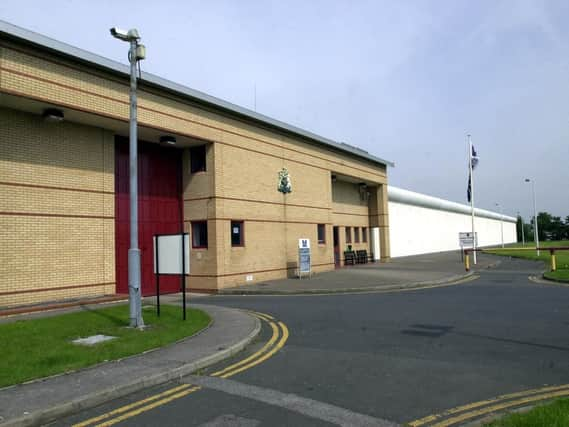"Significant improvements" at Leyland prison dominated by drugs and violence


In 2017, an assessment said drugs and violence then dominated the lives of the 800 make prisoners.
Sixty per cent of prisoners told inspectors it was easy to obtain drugs, 30 per cent were testing positive for drugs and around a quarter had developed a drug habit since entering the prison.
Advertisement
Hide AdAdvertisement
Hide AdMuch of the violence and victimisation was said to be related to drug use and associated debts.


Since the 2017 assessment, recommendations have been taken up by prison leaders, including a case work approach to perpetrators of violence, extra support for vulnerable prisoners and governance of the use of force.
A report issued today said that by late 2018, safety had risen from a poor assessment to not sufficiently good. Respect rose to reasonably good and purposeful activity and rehabilitation and resettlement remained at that level.
Despite this, inspectors noted:
- In the previous six months, the prison had reported 119 violent incidents, 35 of which were assaults on staff and 48 assaults on prisoners; 36 were fights. Inspectors noted that "too many incidents were serious and involved weapons". In the six months before the inspection, there had been at least 20 serious injuries.
Advertisement
Hide AdAdvertisement
Hide Ad- The prison had a well-thought-out approach to drug supply reduction, but it was still far too easy to obtain illicit drugs at the prison.
- Levels of self-harm were significantly higher than at the last inspection and compared with other category B training prisons.
- Although conditions had improved, too many cells remained "very dirty".
- Transgender prisoners received good support, but there were some gaps in the provision for disabled and older people and "not enough was done to identify veterans and support for them was underdeveloped."
Advertisement
Hide AdAdvertisement
Hide Ad- Too many prisoners were locked in their cells during the working day.
Peter Clarke, HM Chief Inspector of Prisons said: “The leadership of HMP Garth were keen to point out to me that there were early signs of improvement, and it was to their credit that what had been achieved was sufficient to raise our assessments in two of our healthy prison tests.
"Given the overall context in which establishments such as Garth have been operating over the past few years, this is an achievement that should not be underestimated.
"For the future, dealing with the twin scourges of drugs and violence will be the key to making further progress, and I hope that when we next inspect HMP Garth we will be able to report that the momentum we saw on this occasion will have been maintained.”
Advertisement
Hide AdAdvertisement
Hide AdPhil Copple, HM Prison and Probation Service (HMPPS) Director General of Prisons, said: “It is extremely encouraging to see significant progress being made at HMP Garth, and I echo the Chief Inspector’s confidence that the hard work of the prison officers in the establishment will maintain this going forward.
"The prison continues to tackle drugs and violence head on, ensuring that prisoners can focus on rehabilitation, and I’m delighted to see that their efforts are leading to real improvements.”